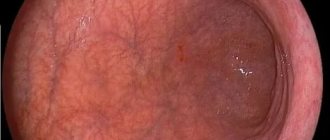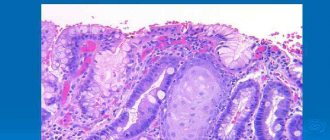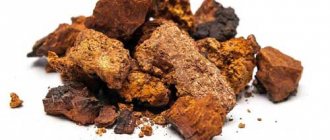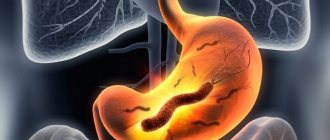What is gastritis
The constant increase in diseases of the digestive system is a consequence of the development of civilization, associated with the ability to produce food in large quantities.
The abundance of fast food establishments, temptingly shiny displays of prepared foods in supermarkets, eliminating the need to spend time preparing food at home - all this, if left uncontrolled, can quickly turn into serious health problems. Therefore, the word gastritis is familiar to almost every resident of a modern city. This is a collective diagnosis denoting an inflammatory process in the gastric mucosa, which leads to its degenerative changes. The causes of inflammation can be different.
Inflammation of the gastric mucosa, for example due to poor nutrition, is considered primary gastritis. Secondary gastritis develops against the background of general intoxication of the body or infectious diseases.
The consequence of a long-term pathological process on the gastric mucosa is a violation of its basic functions:
- secretory - inflammation disrupts the mechanism of gastric juice production, its enzymes not only break down food, but also protect the mucous membrane from physical and chemical damage;
- motor - the work of smooth muscles, which ensures the movement of digested food from the stomach into the duodenum, is hampered;
- endocrine - the process of producing hormones that regulate the functioning of the digestive system is disrupted.
Gastritis affects more than half of the world's population. In Russia alone, over the five-year period from 2013 to 2021, the incidence increased by 7% - from 3.8 to 4.1 million people or 20,806 cases per 100 thousand population.
It has now been clinically proven that in most cases the cause of gastritis is Helicobacter pylori infection. This bacterium colonizes the gastric mucosa. More than 50% of the world's population is infected with H.pylory, but the majority of those infected have no symptoms of the bacteria. However, in some people the bacterium provokes the development of atrophic gastritis, stomach and duodenal cancer.
The risk of gastritis increases with age: most patients are people over 60 years of age. Also at risk are people with high or low stomach acidity, which leads to:
- love of spicy and fatty foods;
- a large amount of citrus fruits in the diet;
- alcohol abuse, cocaine addiction.
At risk are also people with weakened immune systems due to previous infectious diseases and those with various systemic pathologies of internal organs.
Inflammation of the gastric mucosa can be a consequence of taking certain antibiotics, nonsteroidal anti-inflammatory drugs, glucocorticoids, and certain heart medications.
Acute gastritis and its consequences
Acute gastritis occurs in both children and adults. Has a bright clinic - the patient complains of nausea, vomiting, diarrhea, he is tormented by pain in the epigastrium, and the temperature rises. The course of the disease is rapid, but the acute period ends after 2–3 days.
During the recovery period, it is very important to follow a diet and not overuse irritating foods, since the gastric mucosa is still inflamed and is not able to fully function.
If you ignore dietary recommendations, reassuring yourself that you are “starving” during the acute period, the disease may not only return, but also become more complicated.
The most common complication of acute gastritis is the transition to a chronic form. If the acute disease proceeds violently, it takes 2 to 3 weeks for the mucous membrane to regenerate. During this period of time, a gentle diet is recommended, which helps restore the inflamed organ.
The main mistakes made by patients in this situation are dietary disorders, which apply equally to all age groups. Adults return to their favorite hot coffee and tea, fried foods and spices, while children suffer from the hypertrophied care of parents who try to feed the child as much as possible because he is weakened after illness. As a result, the weak mucous membrane does not have time to regenerate, and inflammation turns from acute to chronic.
Important! If dietary recommendations are followed, acute gastritis goes away without a trace.
Types of gastritis
Classifications of gastritis have been developed by scientists from different countries. In clinical practice, Russian medical institutions use the Houston classification, developed on the basis of clinical and morphological criteria. In it, gastritis differs according to several characteristics:
- The nature of the course of the disease. The main types of gastritis are acute and chronic. There are also special types of pathology - allergic gastritis, granulomatous, hypertrophic and some others.
- Area of inflammation. The pathological process may affect the mucous membrane of one of the sections of the stomach. When the mucous membrane of the entire stomach becomes inflamed, a diagnosis of pangastritis is made.
- Causes of inflammation. According to this criterion, 3 types of gastritis are distinguished: autoimmune (A), caused by the bacterium H.pylory (B), and inflammation due to chemical toxic effects (C). Gastritis can also be caused by a combination of several reasons.
- Features of the process and the nature of changes in the mucosa. Gastritis can manifest itself as erosions on the mucous membrane, diffuse purulent lesions, and areas of tissue atrophy.
- Concentration of hydrochloric acid in gastric juice. Stomach acidity during gastritis can remain normal, increase or decrease.
According to other common classifications, gastritis is divided by the degree and activity of inflammation, by phases - exacerbation and remission, by subsequent complications, etc.
Figure 1. H.pylory in the stomach with gastritis. Source: verywellhealth.com
Gastritis (inflammation of the stomach lining)
Gastritis is limited only to the mucous membrane of this important organ of the digestive system. To understand the characteristics of this type of pathology, you need to understand the structure of the stomach and its epithelium.
The stomach is a hollow muscular organ, the inner layer of which protects the muscle wall from the aggressive effects of hydrochloric acid produced during digestion. In normal condition, the mucous membrane retains its integrity and ability to rapidly regenerate cells, due to which it absorbs water well.
The cells of a healthy gastric mucosa are renewed very quickly - within 4-5 days. With prolonged exposure to negative factors, epithelial cells lose their protective function, and pathological changes begin in the mucosa. As a result of this process, gastritis develops.
Depending on the duration of the influence of negative factors and the intensity of the impact, two forms of gastritis are distinguished:
- Acute - occurs suddenly due to a severe allergic reaction, overeating, large amounts of alcohol consumed and other reasons. It manifests itself as severe pain after eating, heartburn, and nausea. With timely and correct treatment, the manifestations of acute gastritis disappear within a week.
- Chronic - occurs in the absence of treatment for acute gastritis or as an independent pathology. Symptoms of inflammation are not as pronounced as in the acute form, or are completely absent. Unlike acute gastritis, a chronic disease is characterized by more extensive damage to the gastric mucosa.
Gastritis goes through several stages in its development:
- redness and swelling of the gastric mucosa as a response to factors that provoke inflammation;
- thickening and chronic inflammation of the mucous membrane and changes in the epithelium of the stomach;
- thinning and atrophy of the mucosa with replacement of epithelial cells with scar tissue;
- the appearance of erosions and ulcers on the mucous membrane.
Important! A timely visit to a gastroenterologist at the first symptoms of gastritis will help determine the cause of inflammation and prevent further development of the pathological process.
Duodenitis (inflammation of the duodenal mucosa)
The inflammatory process can develop in other parts of the digestive system. Duodenitis is a lesion of the mucous membrane of the duodenum, the organ immediately following the stomach.
The function of the duodenum is to “process” food that enters it from the stomach with enzymes that are part of the pancreatic juice and prepare the bolus of food for absorption in the intestine.
The inflammatory process leads to dysfunction of this organ and the development of serious pathologies.
The cause of inflammation is the same as with gastric gastritis, in 90% of cases it is Helicobacter pylori. Chronic gastritis and other systemic pathologies can lead to the development of the disease. Among them: pancreatitis, cholecystitis, malignant neoplasms of the digestive system and others. In the vast majority of cases, duodenitis is a secondary disease; it occurs in acute or chronic form.
Duodenitis often develops in children, since their endocrine system has not yet fully formed. In adults, the risk group includes people suffering from food allergies, alcohol abusers, workers in hazardous industries, as well as people who have an unbalanced diet.
Pathogenesis and etiology of the disease
According to the etiological mechanism of formation, acute gastritis is divided into endogenous and exogenous.
The occurrence of acute endogenous gastritis depends on the presence of infections in the body. The main reason is the presence of the bacterium Helicobacter pylori, which is detected in 80% of patients diagnosed with acute gastritis. Helicobacter bacteria secrete various toxins, under the influence of which inflammatory reactions begin to develop in the gastric mucosa. This bacterium also contributes to the appearance of gastric ulcers.
Less commonly, the causative agents of gastritis of the endogenous mechanism (infectious, for example) are staphylococci, streptococci, Escherichia coli, Proteus, causative agents of fungal infections, cytomegalovirus, and others. Functional and morphological prerequisites for the appearance of this type of gastritis occur with scarlet fever, influenza, viral hepatitis, measles, pneumonia, diphtheria. In some cases, acute gastritis of secondary etiology can occur with secondary syphilis or disseminated tuberculosis.
The etiological causes of acute exogenous gastritis are food agents - mechanical, thermal, chemical. Irritation of the mucous membrane by hot, rough, spicy food can cause the development of acute gastritis. They also have an adverse effect on the stomach and can act as irritants:
- dry food;
- poorly chewed food;
- overeating or an overly strict diet;
- eating a large amount of spicy, fried, salty, smoked foods and food seasoned with vinegar, pepper, mustard.
Frequent consumption of alcohol, strong coffee, and smoking have a damaging effect on the mucous membrane of the digestive organ.
Exogenous causes often include food poisoning, which is caused by eating foods contaminated with Shigella, Salmonella, Yersinia, and Klebsiella. Also, damage to the mucous membrane and its irritation can be provoked by prolonged use of certain medications - sulfonamides, glucocorticoids, salicylates, iron preparations, bromides, antibiotics.
Acute gastritis can manifest itself against the background of radiation therapy in the treatment of gastric oncology (radiation gastritis), accidental (or intentional) penetration into the stomach of chemicals (compounds of iodine, acetone, arsenic, nitric, phosphoric, sulfuric, acetic, hydrochloric acids, ammonia, caustic soda and others). With large concentrations or volumes of toxic substances entering the body, a burn may occur or perforation of the wall of the esophagus and stomach may develop.
Acute allergic gastritis can develop due to personal intolerance to certain types of foods and may be accompanied by other allergic reactions - angioedema, urticaria, an attack of bronchial asthma.
Damage or inflammation of the mucous membranes is also caused by frequent endoscopic examinations, the study of gastric secretion with the support of probes and pH meters. Mechanical damage to the walls of the stomach is also undesirable - injuries from blows, bruises, intense physical activity or foreign objects entering the stomach (poultry bones, fish, chips, needles).
Stress, neuroses, and depressive disorders are also considered risk factors.
Causes
Source: graphicube/Depositphotos
Despite the fact that gastritis is the most common disease of the digestive system, the true causes of its occurrence were established relatively recently.
A revolution in gastroenterology occurred in 2005, when Australian scientists received the Nobel Prize for the discovery of Helicobacter pylori and the development of fundamentally new approaches to the diagnosis and treatment of gastritis.
Most pathogenic bacteria die in the stomach under the influence of hydrochloric acid, but Helicobacter pylori secrete urease, a special enzyme that neutralizes the effect of acid. The bacterium enters the body through household contact and through contaminated water and food. Having reached the stomach through the digestive tract, it begins to actively multiply on the mucous membrane. Colonies of harmful microorganisms destroy the epithelium, causing inflammation.
Although bacterial damage to the mucous membrane of the stomach or duodenum is the main cause of the occurrence and development of gastritis, it is not the only one. Other factors include:
- Reflux. In some diseases of the digestive system, the contents of the intestines are thrown into the stomach. At the same time, bile irritates its mucous membrane. The combination of these negative aspects causes inflammation of the mucous membrane and its subsequent destruction.
- Chemical and radiation exposure. Inflammation of the mucous membrane can be triggered by the ingestion of heavy metal salts, salts, alkalis and other aggressive substances into the stomach. Damage to the mucosa can occur with radiation injury within 15 Gy.
- Poor nutrition. Dietary habits also significantly affect the acidity of the stomach. Inflammation of the gastric mucosa can be triggered by excessively hot or cold food, excessively hot seasonings, poorly chewed, hard foods, and abuse of sweet carbonated drinks.
- Alcohol abuse and smoking. Ethyl alcohol is a strong irritant to the gastric mucosa. Systematic consumption of alcoholic beverages is one of the main risk factors for the development of acute and chronic gastritis. Nicotine also causes inflammation, as it has a pronounced vasoconstrictor effect. Impaired blood supply to the mucous membrane leads to the occurrence of foci of inflammation.
- Altered reactivity due to antibody formation. Autoimmune gastritis often occurs against the background of certain diseases, for example, insulin-dependent diabetes mellitus.
In older people, gastritis often occurs with various chronic diseases: pathologies of the cardiovascular and nervous systems, malignant tumors, sepsis. Inflammation can also be a consequence of age-related fibrofatty changes in the gastric mucosa.
Features of the course
Inflammation of the gastric mucosa can occur in a person at absolutely any age. Despite this, children aged 5 to 15 years are at increased risk. The fact is that at this time the human body is being rebuilt, which weakens naming abilities. Infectious gastritis can be either acute or chronic. In the acute form of this disease, the gastric mucosa begins to rapidly thin out, which leads to atrophy of the organ. Also, the performance of the endocrine glands decreases significantly, which causes secretory insufficiency and a decrease in the level of acidity in the stomach.
Try not to eat foods that have a negative effect on the walls of the stomach: spicy, cold, fatty, fried, pickled and spicy. Chemical compounds and toxic substances pose a particular danger
The acute form has several varieties - infectious gastritis can be fibrinous, catarrhal, phlegmonous and erosive. On average, the duration of an exacerbation is 7 days. If the person is not treated at this time, a chronic form of the pathology develops.
The following reasons can provoke an exacerbation of infectious gastritis:
- Entry of pathogenic microorganisms into the stomach;
- Long-term use of large doses of alcoholic beverages;
- Improper and unbalanced nutrition;
- Use of certain medications;
- Chemical or thermal injuries;
- Smoking;
- Decreased immune abilities of the body;
- Hormonal imbalance;
- Malfunctions of the endocrine system.
Symptoms
Symptoms of gastritis are varied, their severity depends on the form and nature of the disease. The chronic course is characterized by periodic stomach pain and heartburn. The period of exacerbation is replaced by long-term and short-term remission, when a person is not bothered by stomach discomfort and is in no hurry to see a doctor.
The first signs of gastritis
Often, the first signs of inflammation of the gastric mucosa do not cause any particular concern in a person, and he can attribute them to poor quality food or general fatigue.
Important! Taking painkillers during attacks of gastritis will only improve the condition for a short time. Long-term use of analgesics will lead to increased inflammation and rapid spread of the pathological process.
What symptoms should you pay attention to first:
- A feeling of heaviness in the upper abdomen 20-30 minutes after any meal.
- Heartburn is a burning sensation under the breastbone that rises to the throat. Heartburn is characteristic of gastritis with increased stomach acidity.
- Nausea immediately after eating or with a long break between meals. The condition may be accompanied by bouts of vomiting with leftover food.
- Metallic taste in the mouth, belching with an unpleasant odor.
- White coating on the tongue.
- Decreased appetite.
- Drawing pain in the navel area, radiating to the back. This may be a signal of problems with the pancreas.
During periods of exacerbation, the temperature may rise to subfebrile levels (37.2 - 37.5), general weakness, chills, dizziness.
Symptoms can manifest themselves complexly or individually, but each of them is a reason to consult a gastroenterologist.
Important! Widely known remedies for heartburn and stomach pain can cause irreparable harm to health and give the opposite result.
There are also nonspecific signs of gastritis, which also require careful attention. These symptoms include: cracks in the corners of the lips, increased sweating, brittle nails, split ends, and excessive dry skin.
Later symptoms
If you ignore the first symptoms of the disease and do not treat it at the initial stage, gastritis develops into more severe forms. Significant damage to the gastric mucosa is accompanied by symptoms requiring emergency medical care:
- constant acute pain in the stomach, burning in the upper abdomen, radiating to other organs;
- vomiting mixed with pus or blood is a sign of excessive acid secretion and severe ulceration of the mucous membrane;
- black stool due to gastrointestinal bleeding;
- vomit, similar in color to coffee grounds, is a sign of destruction of the mucous membrane and bleeding.
Losing time when seeking emergency help can lead to serious complications, including death.
Figure 2. Memo - what to look for and suspect gastritis. Source: macrovector/Depositphotos
Infectious gastritis in children
Any child is at risk because they pay less attention to their diet. The number of children suffering from gastritis is constantly growing. The disease is getting younger every year. The reasons are a general deterioration in the quality of products, the environment, increased stress, and heredity. If a parent is a Helicobacter carrier, the child’s chances of becoming infected increase.
The symptoms of gastritis are identical for children. It is worth paying attention and running for examination if they have the following signs of intoxication:
- digestive disorders for several days;
- close relatives suffer from ulcers, gastritis, oncology of the gastrointestinal tract;
- lethargy, weakness;
- pain in the abdomen;
- temperature.
Ignoring or late diagnosis of the disease will contribute to the transition of pathology in children to the chronic phase. Parents should be especially careful when the child is between five and seven and during puberty. These periods are characterized by increased development of the body.
Diagnosis of the disease
A doctor can identify the disease by a number of characteristic symptoms. To find out the causes of the pathology, a comprehensive laboratory and instrumental examination is necessary; the nature and composition of further treatment depends on this.
Main types of studies for gastritis:
- Esophagogastroduodenoscopy is a study of the condition of the inner wall of the stomach using a device with a probe equipped with a video camera. The analysis helps to identify areas of affected epithelium and the presence of ulcers and erosions on the mucosa.
- X-ray with contrast to identify nodes and erosions.
- Intragastric pH-metry - determination of stomach acidity to prescribe specific treatment.
- The Helicobacter breath test is a modern and highly informative method for determining the presence of Helicobacter pylori in the body by analyzing the carbon concentration in exhaled air.
- Study of gastric juice to assess the secretory function of the stomach.
Mandatory laboratory tests - general and biochemical blood tests, stool analysis.
Chronic gastritis
Description
Chronic gastritis is a chronic inflammation of the mucous membrane (in some cases, deeper layers) of the stomach wall. Etiology A common disease, accounting for about 35% of diseases of the digestive system, and 80-85% of diseases of the stomach. It is the result of the development of acute gastritis; it often develops under the influence of various exogenous factors (eating disorders, consumption of spicy and rough foods, addiction to hot food, poor chewing, dry food, consumption of strong alcoholic beverages). The cause of chronic gastritis may be poor nutrition (deficiency of protein, iron and vitamins), prolonged uncontrolled use of medications that have an irritating effect on the gastric mucosa (salicylates, butadione, prednisolone, some antibiotics, sulfonamides, etc.), industrial hazards (lead compounds, coal, metal dust, etc.), diseases causing tissue hypoxia (chronic circulatory failure, pneumosclerosis, anemia), endogenous intoxications in kidney diseases, gout (in which the gastric mucosa secretes urea, uric acid, indole, skatole, etc.) , the effect of toxins in infectious diseases and local chronic foci of infection (the so-called elimination chronic gastritis), hereditary predisposition. In 75% of cases, chronic gastritis is combined with chronic cholecystitis, appendicitis, colitis and other diseases of the digestive system. Pathogenesis Functional secretory and motor disorders of the stomach, dystrophic and inflammatory changes and disturbances of regeneration processes in the epithelium of the superficial layers of the mucous membrane, and later the gastric glands are involved in the pathological process, which gradually atrophy or are rebuilt as crypts. Classification Chronic gastritis is distinguished as a primary disease and as a concomitant disease (secondary gastritis). Based on etiology, exogenous and endogenous chronic gastritis are distinguished. According to the degree of secretory disorders, chronic gastritis with secretory insufficiency is distinguished. Based on biopsy data, superficial gastritis, gastritis with damage to the glands (without atrophy), atrophic gastritis (moderately expressed), gastritis with signs of restructuring of the gastric mucosa are distinguished. Based on the localization of morphological changes, they are distinguished: widespread chronic gastritis, antral and isolated gastritis of the body (bottom) of the stomach. Special forms of chronic gastritis include hemorrhagic, rigid, giant hypertrophic and polypous gastritis. Symptoms The most common symptoms are a feeling of pressure and fullness in the epigastric region after eating, heartburn, nausea, sometimes dull pain, loss of appetite, unpleasant taste in the mouth, and upon palpation - often mild pain in the epigastrium. Initially, the disease can occur with a different secretory background, although most often there is a tendency to reduce the secretion and acidity of gastric juice. Differential diagnosis Differential diagnosis of the main forms of gastritis is carried out with functional disorders of the secretory function of the stomach, while chronic gastritis is characterized by more persistent and pronounced symptoms, a picture of inflammatory changes in the mucous membrane submitted by gastrofibroscopy and biopsy. Gastritis with preserved and increased gastric secretion, antral gastritis, often manifested by pain, should be differentiated from peptic ulcer; with gastritis, there is no seasonality of exacerbation; at the height of exacerbation, ulceration of the gastric mucosa is not detected. Polyposis gastritis is differentiated from gastric polyposis; Targeted biopsy data are critical. To differentiate antral and giant hypertrophic gastritis from a stomach tumor, gastrofibroscopy with targeted biopsy is crucial. Treatment is carried out on an outpatient basis; in case of exacerbations, hospitalization is advisable. Medical nutrition is of key importance. During the period of exacerbation of the disease, meals should be divided, 5 - 6 times a day (diet No. 1 a). For chronic gastritis with secretory insufficiency, diet N 2 is prescribed. For chronic gastritis with normal and increased secretion, during an exacerbation, diet N 1a is prescribed, after 7-10 days they move to table N 16, after the next 7-10 days - to diet N 1. During the period of exacerbation, the diet should be complete, only table salt, carbohydrates and extractive substances are limited, especially with increased acidity of gastric juice. With increased secretory and motor-evacuation functions of the stomach, anticholinergic, antispasmodic and ganglion-blocking drugs are prescribed (atropine, platyphylline, antispasmodic, benzogexonium) in combination with antacids (vicalin, almagel, etc.) and drugs that stimulate regenerative processes (methyluracid, pentoxyl, licorice preparations, etc. .). In chronic gastritis with secretory insufficiency and pain, ganglion-blocking drugs are prescribed (quateron, gangleron, which, while causing a pronounced antispasmodic effect, have relatively little effect on the secretory function of the stomach), as well as plantain juice, plantaglucide, which cause a slight increase in secretion, enhance the motor function of the stomach and have anti-inflammatory and antispasmodic effect. Astringent and enveloping agents are indicated. In order to influence the secretory function of the stomach, vitamins PP, C, B6 are prescribed. Outside of exacerbation, when there are signs of decompensation of gastritis (flatulence, Achilles diarrhea), replacement therapy with gastric juice, abomin, betacid, pancreatin, etc. is used. For the treatment of chronic gastritis with secretory insufficiency, in the development of which autoimmune processes play a significant role, in some cases the prescription of glucocorticosteroid hormones is justified . Physical methods of treatment: heating pads, mud therapy, diathermy, electrical and hydrotherapy, etc. Prevention The main importance is a balanced diet, avoidance of strong alcoholic beverages and smoking. It is necessary to monitor the condition of the oral cavity, promptly treat diseases of other abdominal organs, and eliminate occupational hazards. Patients with chronic gastritis, especially with atrophic and dysregenerative changes, should be registered at the dispensary and comprehensively examined at least twice a year. Chronic gastritis with normal and increased secretory function of the stomach Chronic gastritis with secretory insufficiency Hemorrhagic gastritis Rigid gastritis Polypous gastritis Giant hypertrophic gastritis
Treatment of gastritis
Therapy should be carried out systematically, taking into account the characteristics and nature of the disease, the causes of inflammation, the presence of concomitant pathologies and data from a comprehensive examination.
The treatment regimen is prescribed only by a gastroenterologist; any self-medication is strictly excluded.
Diet for gastritis
Strict adherence to the diet prescribed by your doctor is an important component of effective treatment of gastritis. The diet is prescribed depending on the acidity of the stomach.
If you have low acidity, your doctor will help you develop an individual nutritional style. Products included in the diet should moderately stimulate the secretory function of the stomach. Main components of the diet:
- soups with low-fat meat or fish broth;
- porridge with water;
- dishes of boiled and stewed vegetables, fresh vegetables and fruits;
- dairy products.
If you have low acidity, it is not recommended to eat pickles, sauerkraut, or pickled foods. White bread and pastries, canned food, smoked meats, dishes made from any legumes, and garlic should be excluded from the diet.
Spicy foods and seasonings do not cause gastritis, but they irritate the gastric mucosa, increasing inflammation.
With high acidity, the diet provides for frequent split meals. Avoid spicy pickled foods, fatty meats and other foods that irritate the mucous membranes. In any case, a nutritionist or gastroenterologist will help you create a diet.
Only boiling and stewing of dishes is allowed; fried foods are strictly prohibited.
Folk remedies
Alternative medicine can only be used as a component of complex therapy and taken after consultation with the attending physician. Traditional medicine recipes can alleviate the general condition and reduce the severity of symptoms, but they are not able to eliminate the cause of the pathology.
Phytotherapy
Medicinal herbs can also be used in the treatment of gastritis only as an adjunct and after mandatory approval by the attending physician.
In folk medicine, decoctions and infusions of wormwood, plantain, oregano, licorice root and other medicinal plants are used to relieve symptoms of gastritis.
It is better to purchase ready-made medicinal herbal mixtures in pharmacies after consultation with your doctor.
Drug treatment
The choice of medications is determined by the type of gastritis and the cause of its occurrence. The main components of complex drug therapy:
- Antibacterial drugs depending on the causative agent of inflammation. In the presence of Helicobacter pylori, macrolides, tetracyclines and other groups of antibiotics are prescribed in combination with bismuth preparations. The choice of drugs when other pathogens are detected depends on their resistance to antibacterial agents.
- To normalize secretory function, proton pump inhibitors are used to reduce the production of hydrochloric acid or drugs with peptin to enhance it.
- Gastroprotectors are prescribed to protect the gastric mucosa from negative factors and preserve the integrity of the epithelium.
To alleviate the patient’s condition, sorbents are prescribed; according to indications, hormonal drugs, sedatives, antispasmodics, and others.
Gastritis in children
During the period of exacerbation, children are prescribed bed rest with abstinence from any food for at least half a day. Frequent drinking in small portions, gastric lavage or enema are indicated.
Any manifestation of gastritis in children requires immediate consultation with a pediatrician and strict adherence to his recommendations.
Antibiotics, absorbents and antireflux drugs are prescribed after identifying the causes of inflammation, taking into account the general condition of the child and the individual characteristics of his body.
Treatment of pathology
In case of acute gastritis, fasting is recommended in the first day or two, after which a diet is prescribed. In case of chemical or food poisoning, gastric lavage is done as first aid. Also stop taking medications that irritate the stomach, stop smoking and drinking alcohol.
Drug treatment involves the use of H2-histamine receptor blockers that have an antisecretory effect (Cimetidine, Ranitidine, Famotidine), antacids (aluminum hydroxide, magnesium oxide, aluminum phosphate, magnesium carbonate), proton pump inhibitors (Omeprazole "and its analogs), gastroprotectors (bismuth preparations).
For gastritis of a specific etiology, clinical recommendations include the appointment of appropriate treatment - antifungal, anti-Helicobacter, anti-tuberculosis therapy.
To relieve pain, the following painkillers are used: Papaverine, Atropine, Platifillin; for vomiting, prokinetics are used - Metoclopramide, Domperidone. In case of severe dehydration, infusion therapy with saline solutions is performed.
Treatment of phlegmonous acute gastritis is carried out surgically: gastrotomy is performed, drainage of the purulent focus, in some cases gastrectomy or gastrectomy is performed.
Nutrition
Following a diet for pathology is an obligatory stage not only in the treatment process, but also in subsequent life. During the treatment period, food is limited, after which the usual regimen is gradually introduced, but the dishes should be pureed.
After treatment, the patient must carefully follow the rules of a healthy diet, and not eat unhealthy, spicy or fatty foods.
During the first 2-4 days of therapy, the patient should refrain from eating. After this, it is necessary to ensure that food does not burden the weakened gastrointestinal tract. Meals should mainly consist of boiled or steamed dishes. Spices are strictly excluded, salt consumption is limited.
Dishes allowed for acute gastritis:
- Lean meat (veal, turkey, rabbit, chicken).
- Porridge on the water.
- Boiled potatoes (no more than 1-2 servings per week).
- Soup with cereals in vegetable broth.
- Tea with chamomile, rosehip, jelly.
With high acidity, it is allowed to eat: milk, boiled eggs, natural yoghurts, kefir.
With low acidity, low-fat cottage cheese and kefir are allowed.
Complications of gastritis
Source: lacheev/Depositphotos
Neglect of medical recommendations and lack of timely treatment can lead to serious complications, including:
- the occurrence of stomach and duodenal ulcers;
- thinning of the gastric mucosa and its atrophy;
- internal bleeding and anemia;
- malignant formations in the organs of the digestive system.
Gastritis significantly reduces the quality of life, so timely diagnosis and proper treatment should be a priority at the first signs of the disease.
Chronic gastritis with secretory insufficiency
Description
Chronic gastritis with secretory insufficiency is Gastritis, characterized by atrophic changes in the gastric mucosa and its secretory insufficiency, expressed to varying degrees. It develops mainly in mature and elderly people. Symptoms Gastric and intestinal dyspepsia are noted (unpleasant taste in the mouth, loss of appetite, nausea, especially in the morning, belching of air, rumbling and transfusion in the abdomen, constipation or diarrhea); with a long course - weight loss, hypoproteinemia, symptoms of polyhypovitaminosis, mild hypocortisolism, insufficiency of other endocrine glands (general weakness, impotence, etc.), normochromic or iron deficiency anemia. Concomitant enteritis often occurs; intestinal dysbiosis, pancreatitis, cholecystitis leave their mark on the clinical picture of the disease. Treatment is carried out on an outpatient basis; in case of exacerbations, hospitalization is advisable. Medical nutrition is of key importance. During the period of exacerbation of the disease, meals should be divided, 5 - 6 times a day (diet N 2). During the period of exacerbation, the diet should be complete, only table salt, carbohydrates and extractive substances are limited. In chronic gastritis with secretory insufficiency and pain, ganglion-blocking drugs are prescribed (quateron, gangleron, which, while causing a pronounced antispasmodic effect, have relatively little effect on the secretory function of the stomach), as well as plantain juice, plantaglucide, which cause a slight increase in secretion, enhance the motor function of the stomach and have anti-inflammatory and antispasmodic effect. Astringent and enveloping agents are indicated. In order to influence the secretory function of the stomach, vitamins PP, C, B6 are prescribed. Outside of exacerbation, when there are signs of decompensation of gastritis (flatulence, Achilles diarrhea), replacement therapy with gastric juice, abomin, betacid, pancreatin, etc. is used. For the treatment of chronic gastritis with secretory insufficiency, in the development of which autoimmune processes play a significant role, in some cases the prescription of glucocorticosteroid hormones is justified . Physical methods of treatment: heating pads, mud therapy, diathermy, electro- and hydrotherapy, etc.
Lifestyle with gastritis
Recommendations for lifestyle correction are given by the attending physician, but following general simple rules will significantly improve the condition and avoid exacerbations:
- It is important to limit your alcohol consumption, it is better to quit smoking. A glass of wine with dinner, of course, will not lead to gastritis, but any alcohol in excess is a direct path to illness.
- Choose simple, minimally processed foods. Processed meat products, such as sausages and sausages, are best avoided completely.
- Drink more plain clean water. This will help normalize stomach acidity between meals.
- Develop healthy eating habits; while eating, it is better to chat with friends and family, rather than watching TV or scrolling through the news.
- The last meal should be at least 4 hours before bedtime.
And one more important recommendation: you should not endure pain! At the first attacks of exacerbation, consult a doctor.











